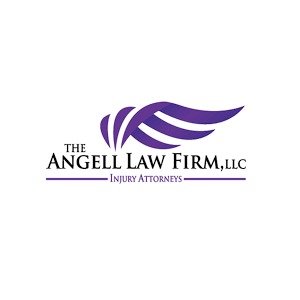Best Toxic Tort Lawyers in Greenville
Share your needs with us, get contacted by law firms.
Free. Takes 2 min.
List of the best lawyers in Greenville, United States
About Toxic Tort Law in Greenville, United States:
Toxic tort law refers to the legal rights and remedies available to victims who have been exposed to harmful substances and suffered injuries as a result. In Greenville, the rules of toxic tort law apply when any individual or company mishandles such substances leading to exposure that may cause injury. Instances can include exposure to manufacturing chemicals, pesticides, pharmaceutical drugs, and even household mold. These cases can be complex to resolve as they demand substantial scientific analysis to link exposure to the specific toxic substance and the injury sustained.
Why You May Need a Lawyer:
Engaging a lawyer is crucial if you or a loved one believe to have been harmed by exposure to a toxic substance. This is important because:
- Evidence gathering: A lawyer can help you gather and preserve crucial evidence linking your injury to the harmful substance.
- Navigating complex legalities: Toxic tort laws are complex, and you need a lawyer to interpret and apply these laws effectively.
- Access to expert testimony: Lawyers have established relationships with expert witnesses who can testify on the nature and impacts of the specific toxic substance.
Local Laws Overview:
The Greenville jurisdiction follows the South Carolina Code of Laws governing toxic tort cases. One key element of these laws is the “Statute of Limitations,” which limits the timeframe within which a toxic tort claim can be brought after the injury or illness becomes apparent. Consulting with an attorney who is well versed with these rules in Greenville is crucial to ensure your rights are fully protected.
Frequently Asked Questions:
What is a toxic tort claim?
A toxic tort claim is a specific type of personal injury claim that is brought forward by a plaintiff who has been exposed to a toxic substance, causing them harm or injury.
How long do I have to file a claim?
In South Carolina, toxic tort claims typically need to be filed within three years from the date the injury is discovered. However, certain exceptions can extend this period, and an attorney can provide advice tailored to your specific situation.
Who can be held liable in a toxic tort case?
Various parties can be held liable, depending on the specifics of the case. These can include manufacturers of the toxic substances, owners of the property where exposure occurred, or employers that did not provide adequate safety measures.
What damages can I recover in a toxic tort case?
Victims can seek compensation for medical expenses, loss of income, pain and suffering, as well as punitive damages in some circumstances.
Can a toxic tort claim be filed for class-action lawsuits?
Yes, if a large number of people are affected by the exposure to the same toxic substance, a class-action lawsuit may be filed.
Additional Resources:
The following resources can provide valuable assistance and information in relation to Toxic Tort:
- South Carolina Department of Health and Environmental Control: This governmental body provides information about public health and environmental protection in South Carolina.
- South Carolina Legal Services: Offers free legal help in civil cases to eligible low-income residents.
- Greenville County Bar Association: Offers referral services to help you find a qualified local attorney specialized in toxic tort law.
Next Steps:
If you believe you have a valid toxic tort claim, one of the most important steps is to contact a lawyer who specializes in toxic tort law. Collect all the possible evidence related to your exposure and injury, and do not hesitate to obtain immediate medical attention. Document everything as it can be crucial when arguing your case.
Lawzana helps you find the best lawyers and law firms in Greenville through a curated and pre-screened list of qualified legal professionals. Our platform offers rankings and detailed profiles of attorneys and law firms, allowing you to compare based on practice areas, including Toxic Tort, experience, and client feedback.
Each profile includes a description of the firm's areas of practice, client reviews, team members and partners, year of establishment, spoken languages, office locations, contact information, social media presence, and any published articles or resources. Most firms on our platform speak English and are experienced in both local and international legal matters.
Get a quote from top-rated law firms in Greenville, United States — quickly, securely, and without unnecessary hassle.
Disclaimer:
The information provided on this page is for general informational purposes only and does not constitute legal advice. While we strive to ensure the accuracy and relevance of the content, legal information may change over time, and interpretations of the law can vary. You should always consult with a qualified legal professional for advice specific to your situation.
We disclaim all liability for actions taken or not taken based on the content of this page. If you believe any information is incorrect or outdated, please contact us, and we will review and update it where appropriate.








